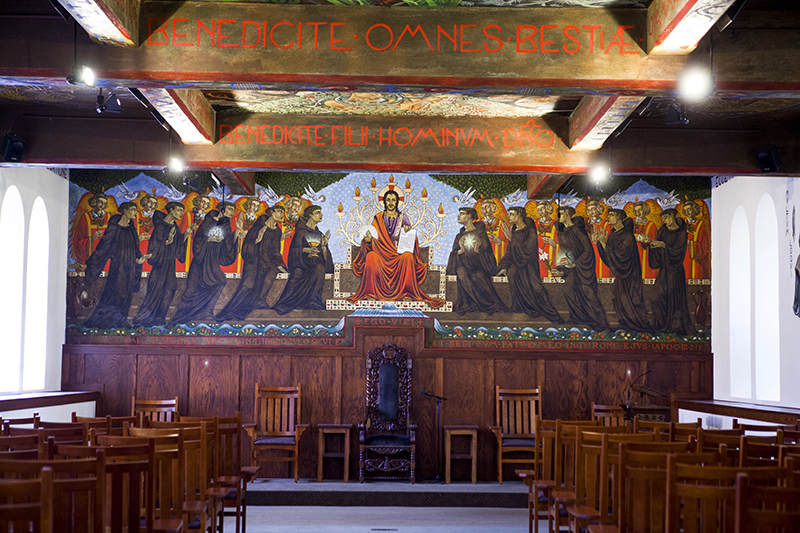Monastic Connectedness
Fr. Adrian Burke, OSB
Thursday, January 20, 2022

"There are clearly four kinds of monks. First there are the cenobites ... those who belong to a monastery where they serve under a rule and an abbot." Rule of St. Benedict 1.1-2
Healthy relationships (community) bring out what's best in a person as well as support the discovery and transcendence of whatever spiritual or psychic wounds or limitations we may bring with us into adulthood, or into the monastery - fragmented parts of our interior landscape as yet unexplored.
I want to blend this concept with the role Benedictine monastic life has in the Church as those consecrated for the express purpose of witnessing to the Kingdom of God, both as an imminent reality (already partly realized) and the final "goal" or purpose God has in mind for the Cosmos (Biblical Greek for creation, world or universe).
St. Benedict clearly thinks that Christians wanting to pursue God in the monastic life best do so as members of a concrete community of like-minded men or women. He writes in chapter one of his Rule that even the most intensive kind of monastic life, the "anchorites" (hermits), ought to spend a long time moving beyond one's "first fervor" by living in a community.
It's there where they can face the dura et aspera, the "hardships and difficulties," needed to help exercise the capacity to obediently, and with good zeal, respond to the demands of charity presented by others in the community.
Benedict calls these monks cenobites because they live in a coenobium (an ancient word for monastery or community), and they are "the strong kind of monks." The other two kinds of monks he judges to be willful and disobedient, unwilling to submit to anyone's authority or example but their own!
Connectedness is essential to what makes a human being a person, an image and likeness of God. To live in community and contribute to its well-being and harmony requires a readiness to put the needs of others ahead of one's own.
Through the monastic vow of conversatio (conversion), monks make a commitment to surrender personal proclivities and preferences, our "willfulness," to the genuine needs of others and the community - their needs for assistance, for encouragement, for friendship, for patience and compassion, for discipline, for guidance and example, etc. - needs we discover we have, too, as we strive to realize our best selves.
Being and staying connected is important to both contribute to the well-being of the community and receive what the community offers for the sake of personal fulfillment, especially opportunities to exercise patience, compassion and obedience! To be an image of God's Triune Personality requires community as a way of manifesting the fullness of one's Godly Self.
Even if our charity is far from "perfect," and this applies to families as well, by God's grace our community must strive to be a sacred sign of God's justice and love by being a safe and compassionate venue in which members can practice these two highest of all Christian virtues.